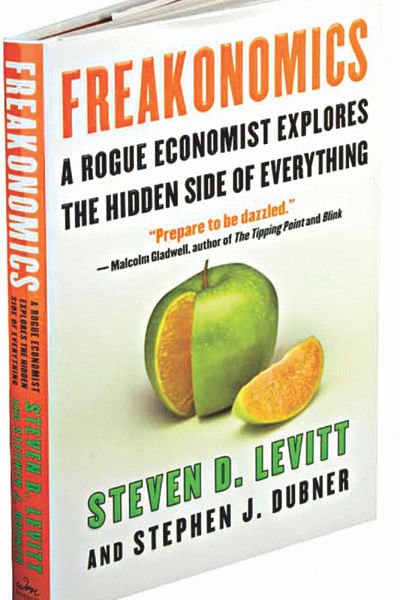Must Reads for Economics Nerds

Economics is a very demanding subject filled with theories, graphs and loads of math. If you love the subject despite this (or because of this), and need a change from your regular textbook, here are some pleasure reads to satisfy the economist in you.
1. Freakonomics: A Rogue Economist Explores the Hidden Side of Everything tops the list. The name probably gave it away already, but Freakonomics isn't your everyday dead-serious book. This product of a collaboration between University of Chicago economist Steven Levitt, and New York Times journalist Stephen J. Dubner asks all the unusual questions. Staying true to economics concepts, it considers the possible link between legalised abortion and a drop in crime rates, the economics of drug dealing, and when/why school teachers may cheat. Belonging to both Economics and Sociology, Freakonomics has met criticism due to its light nature and apparently inaccurate data, but it is undoubtedly an eye-opening and fun read.
2. The Big Short: Inside the Doomsday Machine provides some unusual insight into events that every economics and finance enthusiast is familiar with – The US housing bubble, and the subsequent financial crisis of 2007. This non-fiction talks about a few, not very famous people from the financial world who actually predicted the bursting of this housing bubble. This may not be a fully comprehensive account of the events but it more or less explains what went on in those years of possibly avoidable crisis. The dark humour and criticism of the major players behind this financial disaster that Michael Lewis uses in his writing, make it an interesting book.
3. Predictably Irrational: The Hidden Forces That Shape Our Decisions by Dan Ariely is a good place to start if you're into Behavioural Economics. This book looks deeper into the psychological and emotional factors that lie behind making decisions. It illustrates some interesting points such as why people may be keener on comparing things that are easily comparable, how consumers react to the idea of "free" products, and the reasons behind lack of self-control in people. Ariely brings into question the so-called rational human being and seeks to provide a more accurate model of rationality. By relying on examples, anecdotes, and fun experiments, Ariely will make you question yourself the next time you're making a decision.
4. The Economic Naturalist: In Search of Explanations for Everyday Enigmas is based on short and easy to read case studies from an assignment that writer Robert H. Frank gave his students in his economics classes at Cornell University. This book further feeds the notion that basic economics concepts can be used to answer some bizarre questions - Why does a $500 tuxedo rent for $90 a day while a $20,000 car rents for only $40? Why are whales, but not chickens, in danger of extinction?
These books may help you grasp some concepts better, and question others, but you will certainly learn some cool stuff.
Salma Mohammad Ali fears she is becoming a crazy cat lady and uses writing as a means to grasp on to sanity. Send her your views/hate/love at fb.com/salma.ali209

 For all latest news, follow The Daily Star's Google News channel.
For all latest news, follow The Daily Star's Google News channel. 



Comments